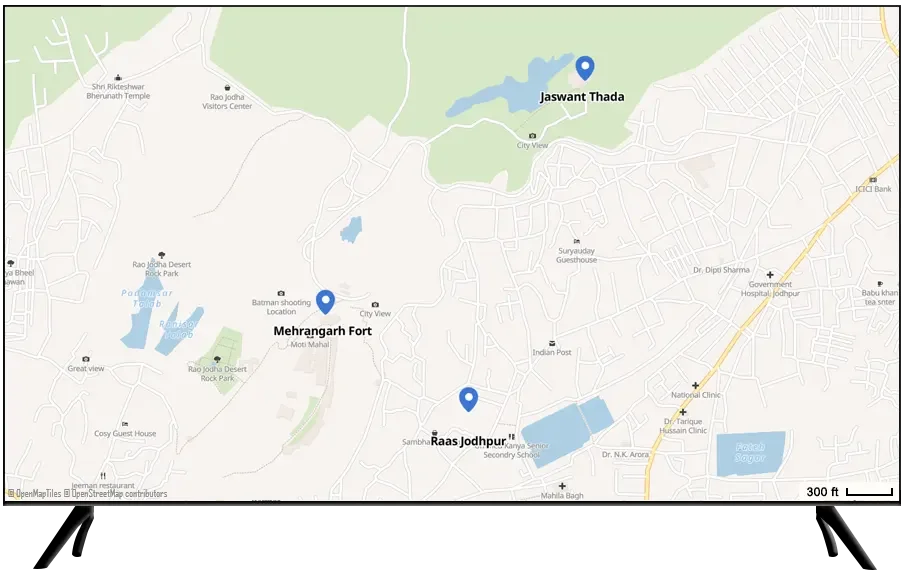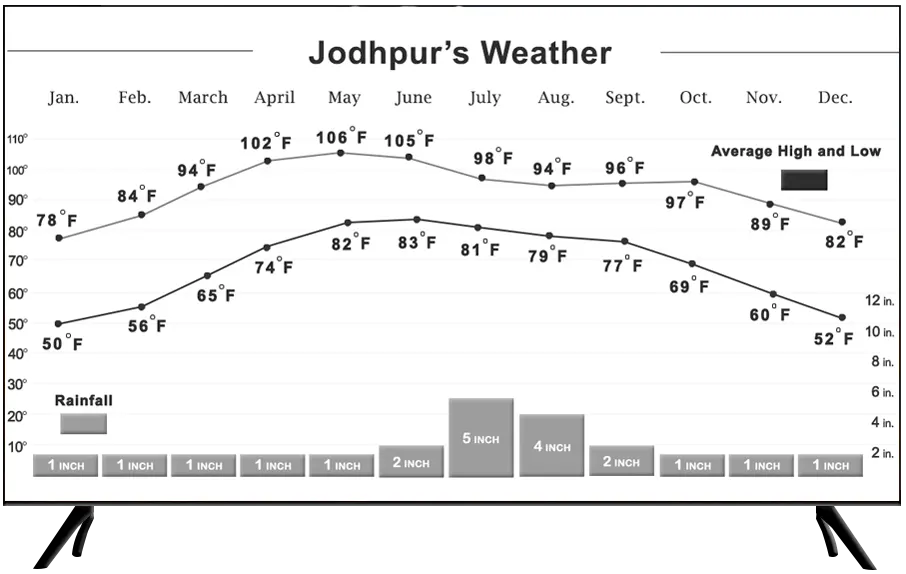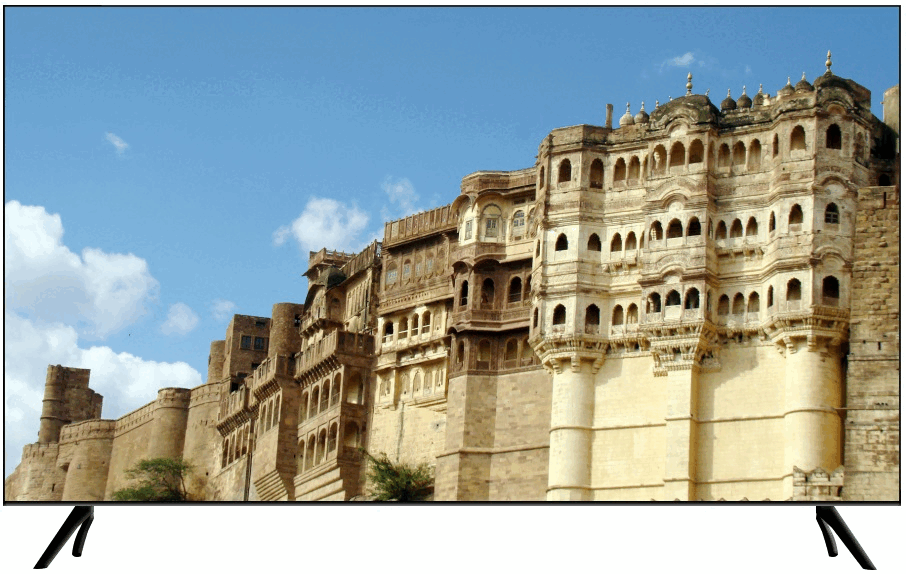



Day 17. Jodhpur
Overnight – Raas Jodhpur
Mehrangarh Fort. Proceed on a half day city tour of Jodhpur. The tour begins from the fifteenth century Mehrangarh Fort. This formidable hilltop fort is arguably the most awe-inspiring in Rajasthan, a land of impressive hilltop forts and palaces. Entry to the massive fort is through a series of seven great gates, with the main entrance being the huge Lohapol that literally means Iron Gate. Next to this gate there are 15 handprints in the wall, the Sati marks of Maharaja Man Singh’s widows. These handprints were etched into the wall by the queens just prior to them throwing themselves upon his funeral pyre in 1843, as the besieged fort was about to be conquered. Inside the fort is a collection of some of the finest palaces and galleries, including, Moti Mahal (Pearl Palace), Sukh Mahal (Pleasure Palace), Phool Mahal (Flower Palace), Elephant Howdah Gallery, Palanquin Gallery, the Armory, the Turban Gallery, and the Folk Music Gallery. The Daulat Khana houses one of the world’s finest collections of Mughal Art.
Jaswant Thada. On your way down from the fort you will stop for a tour of Jaswant Thada, a marble cenotaph built in 1899 as a memorial to Maharaja Jaswant Singh II. There will be a break for lunch at a time of your choosing.
Optional Bishnoi Village Tour. Afternoon: You have the option to explore more of charming ancient Jodhpur around your boutique hotel with your Guide, or to enjoy a visit to a rural community on the outskirts of Jodhpur (we recommend the first option as the Bishnoi tribe visit has become fairly commercialized). The village you will visit is inhabited by the Bishnoi tribe. Among other activities, you will spend some time at the home of a potter and his extended family, and even try your hand at the potter’s wheel. You also have the option to witness a ceremony that is unique to this part of Rajasthan. A fairly well-off local tribe has a ritual in which the adults, upon returning from working their fields at the end of the day (most of them do not even go to work anymore!), are greeted by the youth with water pipes laden with opium. You are invited to observe as the adults indulge in this recreational activity.
Mehrangarh Fort. Proceed on a half day city tour of Jodhpur. The tour begins from the fifteenth century Mehrangarh Fort. This formidable hilltop fort is arguably the most awe-inspiring in Rajasthan, a land of impressive hilltop forts and palaces. Entry to the massive fort is through a series of seven great gates, with the main entrance being the huge Lohapol that literally means Iron Gate. Next to this gate there are 15 handprints in the wall, the Sati marks of Maharaja Man Singh’s widows. These handprints were etched into the wall by the queens just prior to them throwing themselves upon his funeral pyre in 1843, as the besieged fort was about to be conquered. Inside the fort is a collection of some of the finest palaces and galleries, including, Moti Mahal (Pearl Palace), Sukh Mahal (Pleasure Palace), Phool Mahal (Flower Palace), Elephant Howdah Gallery, Palanquin Gallery, the Armory, the Turban Gallery, and the Folk Music Gallery. The Daulat Khana houses one of the world’s finest collections of Mughal Art.
Jaswant Thada. On your way down from the fort you will stop for a tour of Jaswant Thada, a marble cenotaph built in 1899 as a memorial to Maharaja Jaswant Singh II. There will be a break for lunch at a time of your choosing.
Optional Bishnoi Village Tour. Afternoon: You have the option to explore more of charming ancient Jodhpur around your boutique hotel with your Guide, or to enjoy a visit to a rural community on the outskirts of Jodhpur (we recommend the first option as the Bishnoi tribe visit has become fairly commercialized). The village you will visit is inhabited by the Bishnoi tribe. Among other activities, you will spend some time at the home of a potter and his extended family, and even try your hand at the potter’s wheel. You also have the option to witness a ceremony that is unique to this part of Rajasthan. A fairly well-off local tribe has a ritual in which the adults, upon returning from working their fields at the end of the day (most of them do not even go to work anymore!), are greeted by the youth with water pipes laden with opium. You are invited to observe as the adults indulge in this recreational activity.

